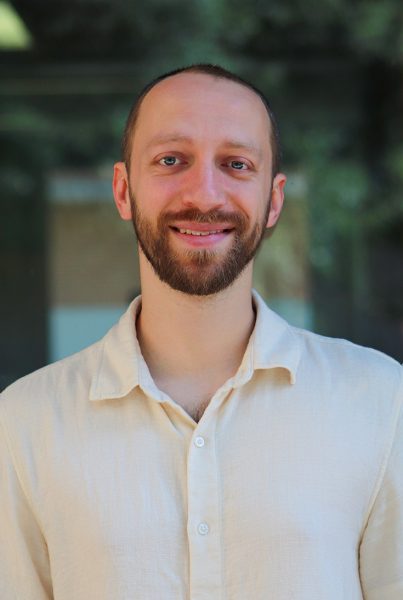Tony Hollenback Joins Jackson School Faculty
September 23, 2025

Tony Hollenback, an environmental geochemist, joined the Department of Earth and Planetary Sciences in May as an assistant professor of practice. The Jackson School of Geosciences’ environmental science program has swelled in size over the last several years; Hollenback will be helping take on the increased teaching load and also helping to manage the copious amount of field equipment.
Hollenback is an alumnus of The University of Texas at Austin, where he graduated with a degree in chemistry and spent a couple of years as a teaching specialist for various chemistry courses.
“That ignited my love for teaching itself,” Hollenback said.
He then “fell backward” into environmental geochemistry when a graduate advisor reached out to him in need of an analytical chemist to run their environmental research. This turned into his doctoral work at the University of Delaware, which focused on environmental soil analytical chemistry.
“It’s kind of a classic problem in geosciences that people tend to analyze the things that are easy to analyze,” Hollenback said. “Organics are a lot harder to analyze. They are a lot more sensitive to your conditions, and generally just a lot more difficult to separate from the soil media. So, my work was: How can we take a soil sample, and extract some prevalent molecule?”
The particular molecule Hollenback studied is phytate, which is common in industrial agriculture and leads to water quality degradation. Other applications of this chemical analysis include detecting anthropogenic contaminants in water, including “forever chemicals” called PFAS, pharmaceuticals, hormones, fertilizers, herbicides and pesticides.
Hollenback is teaching three courses this fall semester: EVS 301 Introduction to Environmental Science, EVS 141 Environmental Science Professionalism and GEO 302G Earth Science and Sustainability.
His teaching philosophy is about making chemistry as real-world, hands-on and practical as possible. For his EVS and GEO classes, that may mean putting concepts into the context of the Austin area.
“If I’m able to bring all this content into their real world, it’s a lot easier to connect with it,” he said.
